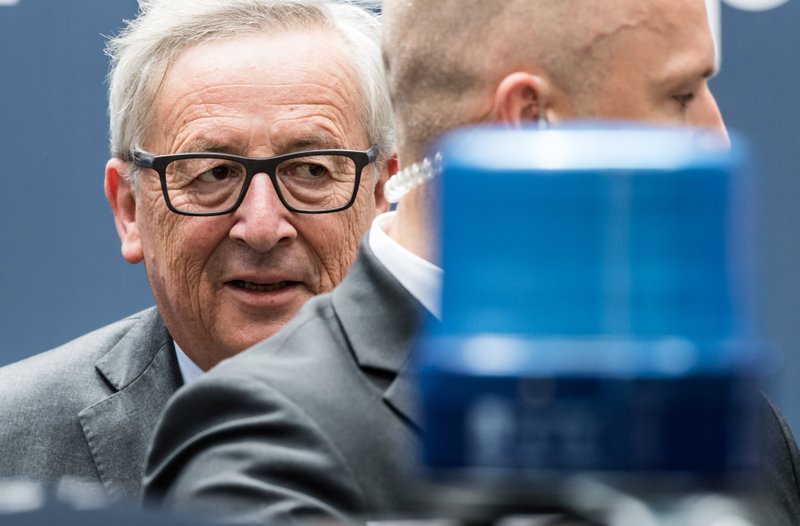LISBON, Portugal -- Disenchantment with the European Union is not limited to British voters who opted to leave the bloc.
Across the continent, anti-EU sentiment is bubbling up, fueled by far-right movements and others unhappy about government spending cuts, the influx of migrants and other policies overseen from the 28-nation bloc's headquarters in Brussels.
Some political parties are offering to fight the cause of those disgruntled voters in forthcoming national elections, while a few groups are demanding a ballot in their own countries on whether to follow the United Kingdom out of the EU door.
That prospect is sending a shudder through top EU officials because it could propel a process where the bloc breaks up or quickly collapses, wrecking Europe's delicate postwar balance.
"Will Britain's shock vote to leave the [EU] embolden populists elsewhere in Europe? That has become the key question for Europe," Holger Schmieding, the chief economist at German bank Berenberg, wrote in an analysis.
France's National Front lost no time in claiming that the U.K. referendum outcome was an emphatic endorsement for the proposals it has been putting forward for years. The nationalist party's leader, Marine Le Pen, posted a Union Jack photo on her Facebook page when the result came out last week, saying, "The United Kingdom has started a movement that will not stop."
The British decision to leave also was met with joy by Dutch firebrand lawmaker Geert Wilders, whose anti-Islam and euroskeptic Freedom Party is riding high in polls ahead of a general election next year.
"We want to be in charge of our own country, our own money, our own borders, and our own immigration policy," Wilders said, pledging to hold a referendum on EU membership if he takes power. "Let the Dutch people decide."
Eager to nip such talk in the bud, EU leaders are taking a tough line with the British government -- refusing to hold any talks on future ties with Britain until London formally notifies Brussels it is leaving.
"No notification, no negotiation," EU Commission President Jean-Claude Juncker said Tuesday -- also sending a signal that leaving the bloc won't be painless.
In June, a party opposed to the traditional power structure triumphed in Italian mayoral runoff elections, upending the established order of municipal politics in Rome and Turin. The 5-Star Movement candidates trounced Italian Premier Matteo Renzi's mainstream rivals.
"We want a Europe that is more a 'community' and not a union of banks and lobbies," the 5-Star Movement's founder, comic Beppe Grillo, wrote on his blog after the British vote.
"The European Union must change, otherwise it dies," he wrote. "There are millions and millions of European citizens ever more critical, who don't recognize themselves in this union, made of banks and economic blackmail."
Grillo apparently was referring to the deeply unpopular austerity measures designed to cut government debt in Europe after the continent's financial crisis. Although the immediate threat of a disintegration of the 19-nation eurozone that uses the euro currency has eased, the budget cuts have stayed.
So has the resentment of them.
Since a general election in Portugal last year, an anti-austerity Socialist government has been kept in power by an unprecedented alliance with the Communist Party and radical Left Bloc. While Portugal has won too many benefits to want to leave the EU, the government's reversal of austerity measures is a clear act of defiance against Brussels.
EU nations such as Hungary, Poland, the Czech Republic and others have also defied EU officials in Brussels by refusing to accept the principle of sharing the refugee load among all EU members and helping hard-hit Greece and Italy.
Even in Germany, a bedrock EU member, there are stirrings of dissent against the bloc.
Although Chancellor Angela Merkel's conservative bloc is easily the strongest political force backing the EU, its ratings have sagged over recent months during the surge of migrants to Germany and the fierce debate about how to respond.
At the same time, the 3-year-old nationalist Alternative for Germany party has surged in the polls and hopes to enter the national Parliament next year. It opposes the EU becoming a "centralist federal state" and demands that the EU go back to being a community of "sovereign, loosely connected individual states."
Information for this article was contributed by Elaine Ganley, Geir Moulson, Frances D'Emilio, Michael C. Corder and Karl Ritter of The Associated Press.
A Section on 07/01/2016

